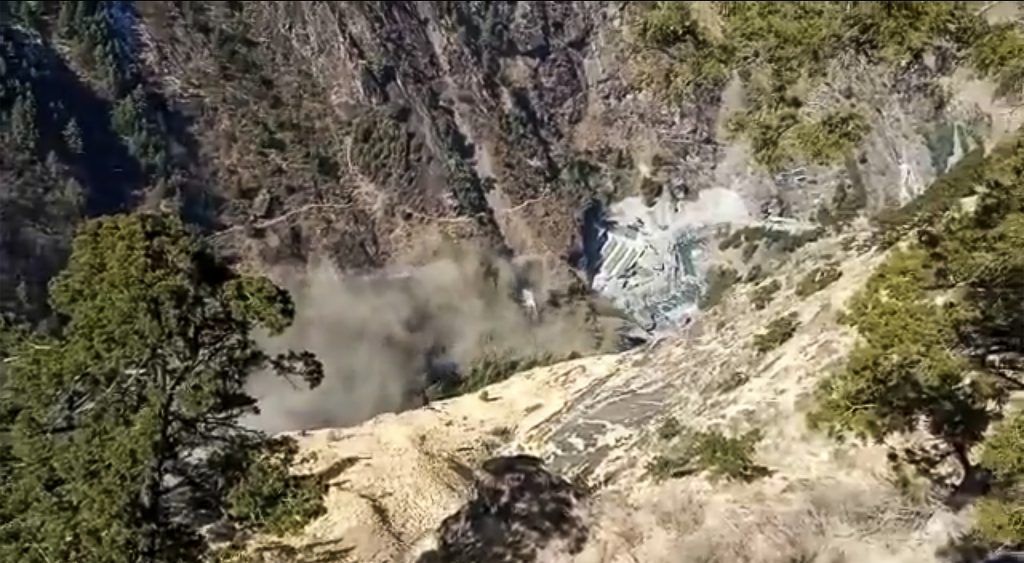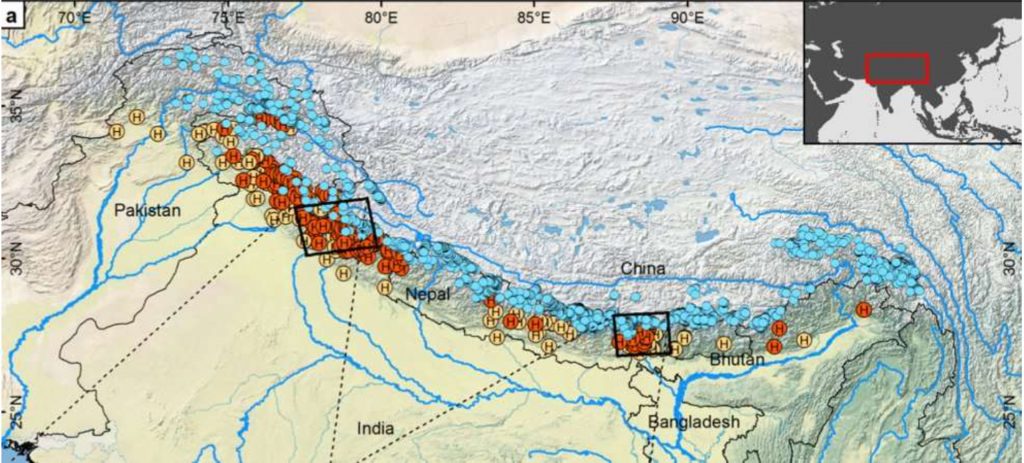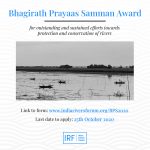Shared Statement on The Uttarakhand Tragedy – February 2021

Events of 7th February 2021 in the Rishi Ganga and Dhauli Ganga valleys in Uttarakhand are yet another grim reminder of the fact that Himalayas as an ecosystem are getting stressed and sick by the day. Climate Change and its impacts are no longer a matter of debate or contestations. It is here to stay.
We have to learn to live with the hard facts and ugly face of Climate Change becoming worse especially in vulnerable regions like the Himalayas, the youngest and restive mountain system in the world. Within the Himalayas itself, there are regions more vulnerable than the rest due to receding glaciers, glacial lakes, steep slopes and sparse vegetation. Such vulnerable regions can do with minimum anthropogenic interventions.
Against the above, the facts are that an avalanche of manmade structures like dams and hydropower projects, barrages, tunnels, wide roads and even railways are either standing/operational, under construction or planned all across the Himalayan region in the country. This can but be suicidal as has repeatedly been experienced in 2012, 2013, 2016 and again now in 2021. We cannot waste any more time before preventive and definitive steps are taken on a priority to reverse the damage already done to fragile Himalayas.
All information available in the public domain about the events of 7 February 2021 indicates that a potentially harmless natural event in the Rishi Ganga valley turned disastrous with preventable loss of life and property due to obstructions like hydroelectric projects standing in the river course and an abject failure of flood warning system, if any, that existed in the area.

We, the signatories to this statement, thus, demand the following from the political and executive establishment of the nation:
- Institute an independent expert investigation of the disaster to fix responsibilities at various levels for the loss of innocent lives and property from it; institute action/s against the culprits and establish protocols and processes to prevent any recurrence of natural events turning into disaster like the present one.
- Immediately scrap the two damaged hydropower projects–Rishi Ganga and Tapovan–and remove the debris from the river courses.
- Fast forward the implementation of the recommendations of the Ravi Chopra Committee that went into the causes and lessons and learnings from 2014 Uttarakhand disaster and cancel on priority all under construction hydropower projects in the state of Uttarakhand. It may be noted that judicial and administrative processes at the highest levels, namely, the Supreme Court and the PMO respectively had initiated such a step but not yet implemented.
- Conduct independent expert review of the disaster potential of all existing dams not just in Uttarakhand but in all the states in the entire Himalayan belt with an aim to prevent any such future happening.
- It is now well known that notwithstanding the inherent geological fragility and seismic vulnerabilities of a young and rising mountain system like the Himalaya, the phenomenon of climate change is going to make it increasingly vulnerable to changes. Thus an independent multi-disciplinary expert group be constituted to carry out a comprehensive review of existing developmental programmes and projects in the Himalayan region in a time bound manner on the lines of the Western Ghats Ecology Expert Panel (WGEEP).The review should be a comprehensive, cumulative, regional review (as against stand alone project-based reviews) that takes into account the combined impacts of all the projects together (including roads, railways, dams, tunnels, tourist centers, colonies, townships, and so-called afforestation) and existing threats of climate change and seismicity.
- Initiate a participatory process to develop an alternative development policy/strategy for the holistic protection, preservation of the Himalayan rivers and the ecosystem and livelihood security of local people. Rampant development in the Himalayan region should be proscribed; instead, Himalayan region should be protected as a natural heritage with minimum intervention approach. The approach should incentivize organic and biodiverse farming, sustainable pastoralism, decentralized water systems, local forest and biomass-based manufacturing, crafts and community-led ecotourism, removing disincentives such as subsidies for ecologically harmful agriculture, mass tourism, etc.
Signatures
- Amita Shah
- Anant Phadke, Shramik Mukti Dal
- Anjum Ara Begum
- Ashok Chatterjee, Centre for Hertiage Management, Ahmedabad University, Ahmedabad
- Dinesh Awasthi, LJ University, Ahmedabad
- Dr. Anant Phadke, Shramik Mukti Dal (democratic)
- Dr. Ravi Chopra, People’s Science Institute, Dehradun
- Dr. S.Janakrajan, SaciWATERs, Hyderabad
- Eshwer Kale, Water Organization Trust, Pune
- Frederic Landy, University of Paris Nanterre, France
- Gorky Chakroborty, Institute for Development Studies, Kolkata
- Himanshu Thakkar, South Asia Network for Dams, Rivers and People
- K. J. Joy, SOPPECOM, Pune
- Kangkanika Nego, Water Researcher, Assam
- Mallika Bhanot, Ganga Ahvan
- Manoj Mishra, Yamuna Jiye Abhiyan, New Delhi
- Manshi Asher, Himadhara
- Neha Bhadbhade, SOPPECOM, Pune
- Neha Khandekar ATREE, Bengaluru
- PC Sai Babu, Forum for Better Bapatla, Andhra Pradesh
- Prafulla Samantara, Lok Shakti Abhiyan, NAPM, Bhubhaneswar
- Rahul Banerjee, Dhas Gram Vikar Kendra
- Raju Adagale, Amity University, Panvel
- Rakesh Diwan, Jounalist, Bhopal
- Roshan Rathod, Independent Consultant, Dehradun
- Sachin Tiwale, Centre for Water Policy, Regulation and Governance, TISS, Mumbai
- Saurabh Singh, Innervoice Foundation, Varanasi
- Sharad Lele, ATREE, Bengaluru
- Shrinivas Badiger, ATREE, Bengaluru
- Siddharth Agarwal, Veditum India Foundation
- Tapan Padhi, Regional Centre for Development Cooperation (RCDC), Bhubhaneswar
- Tarun Bisht, Newcastle University, UK
- Vimal Bhai, Matu Jan Saghatan, Uttarakhand
To add your name to the list of signatories, email us at indiariversforum@gmail.com


